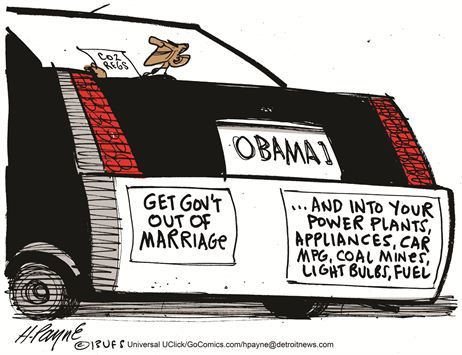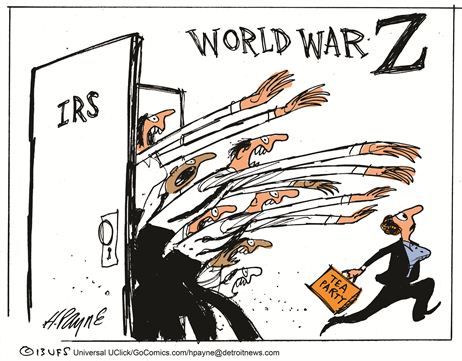On the anniversary of the Declaration of Independence for the GREATEST country in the world, let us reflect as to what our foreign policy should be going forward. What would the founding fathers have wanted? Does our current foreign policy follow the constitution? What does our current foreign policy do to our national debt? Does our foreign policy actually make us safer? Please keep those questions in mind when watching this video…..
Monthly Archives: July 2013
CNN Money: Delay in Obamacare – what you need to know
The Obamacare employer mandate has been delayed by a year to 2015, meaning that many businesses can push back providing worker health insurance a bit longer.
When the Affordable Care Act was passed in 2010, it required that companies with 50-plus full-timers start providing them coverage in 2014 — or face penalties.
That changed on Tuesday. In a blog post, the U.S. Treasury Department explained that the government needs time to simplify reporting requirements, and businesses need breathing room to adapt to the changes.
“This provides vital breathing room. I think businesses are relieved there’s more time to get this right,” said James A. Klein, president of the American Benefits Council, an employer benefits advocacy group.
Here’s what businesses and workers need to know.
Who‘s affected?
A relatively small share of the country’s businesses fall under Obamacare’s employer rules, and most of those that do already provide insurance. That might sound surprising, because the biggest Obamacare myth spouted by opponents is that it will crush small business.
The vast majority of the nation’s businesses, 97% of them, are too small to be affected.
What’s more, most larger employers already provide insurance anyway. Of the nation’s 6.5 million workplaces, only about 70,000 — a little more than 1% — must actually start providing insurance.
Then why does this matter?
The mandate affects most of the nation’s workers. According to the latest Census data, close to 80 million people work at firms that must provide insurance. Though most of them are offered insurance, that still leaves millions who will have to wait another year.
Has the mandate already affected businesses?
It has impacted those businesses that intend to dodge Obamacare by cutting worker hours. The employer mandate kicks in at 50 full-timers, and the law counts anyone who works at least 30 hours a week as full-time.
That’s given rise to the “29ers” phenomenon, in which business owners reduce workers’ hours from full-time to 29 hours per week. This has been especially prevalent in the franchising and restaurant industries, where shift hours are frequently swapped.
There’s no telling whether the mandate has already impacted hiring, though.
—-
Click below for the full article.
http://money.cnn.com/2013/07/03/smallbusiness/obamacare-employer-mandate/index.html?iid=HP_LN
Bloomberg Business Week: Obamacare’s Medicaid Expansion Shortfall Shuts Millions Out of Health Care
Rose Ruiz earns $8 an hour taking care of a 67-year-old diabetic on Medicaid in Austin, Tex. At an annualized rate of $16,640, she can’t afford to buy her own medical insurance. Her best shot at getting coverage was through the expansion of Medicaid mandated under the Affordable Care Act. But because of a U.S. Supreme Court decision that the law’s Democratic authors in Congress never anticipated, millions of low-wage workers who were supposed to be helped by Obamacare will probably end up without coverage.
Obamacare set aside billions of dollars for states to expand their Medicaid programs. Twenty-four of them, most led by Republican governors, have opted out since the Supreme Court ruled a year ago that states could choose not to participate in the expansion. That’s left their low-wage workers in a bind: They make too much to qualify for Medicaid in its present form, but too little to afford a plan their employer might offer. And they don’t earn enough to qualify for subsidies available to help the uninsured buy plans on the state-run Obamacare marketplaces opening in October. These subsidies are available to people with modest incomes—$24,000 to $94,000 for a family of four. Democrats in Congress who wrote the law figured anyone making less would get coverage through the Medicaid expansion.
States dictate the rates they pay companies for providing Medicaid services. The companies then decide the hourly wages they pay home-health aides like Ruiz, which average less than $10 an hour nationally, says William Dombi, vice president for law at the National Association for Home Care & Hospice. Many health aides in states that aren’t expanding Medicaid could need pay raises equal to triple their current wages or more to qualify for the Obamacare subsidies. “It’s one of those things that I’m sure nobody thought about when they were putting this together,” Dombi says.
The problem leaves employers with their own predicament. Those who don’t offer coverage face fines of as much as $3,000 per employee. Yet if an employer offers a new health plan for workers who can’t afford the existing one, and the new plan is deemed “affordable” under the law—meaning it would cost an employee no more than 9.5 percent of his income—then the employee becomes ineligible for Obamacare subsidies to buy a potentially cheaper plan offered through a state-run marketplace. “Lots of employers are really agonizing with the decision,” says Steve Wojcik, vice president for public policy at the National Business Group on Health, a lobbying group. They’ll now have more time to figure it out. On July 2, the Obama administration pushed back the penalties, set to take effect next year, to 2015.
—-
Click below for the full article.
The National Journal: Why the Obama Administration Can’t Win on Health Care
The Obama administration had been absorbing constant political attacks about the so-called job-killing nature of Obamacare, with its complex employer reporting requirements and fines for large companies that don’t offer their workers insurance. But when it announced Tuesday that it would delay implementation of the employer mandate to give businesses more time to prepare, the attack lines simply shifted from arguments about policy merit to those about the administration’s competence.
Republicans used the decision to amp up their calls for repealing the law, sounding as bullish as ever that the Affordable Care Act was inevitably flawed.
It shows that when it comes to the health care law—the president’s signature legislative accomplishment—the administration can’t win.
The White House appeased an angry business community with its decision to postpone a requirement that large employers offer their workers health insurance or pay a fine. The rule had angered even businesses that already insure their workers. It gave Republican opponents ammunition to attack the law, claiming it slowed economic growth. Its delay is likely to quiet some of those particular critiques, at least until after the 2014 election.
But the decision will still be politically useful to the health care law’s political foes, who are now painting the administration as incompetent. A flood of press releases Tuesday night described the law as “unworkable,” its implementation a “train wreck,” and the delay as evidence that all of Obamacare should be taken off the books. “This is a clear acknowledgment that the law is unworkable, and it underscores the need to repeal the law and replace it,” said House Speaker John Boehner in a statement.
—–
Click below for the full article.





